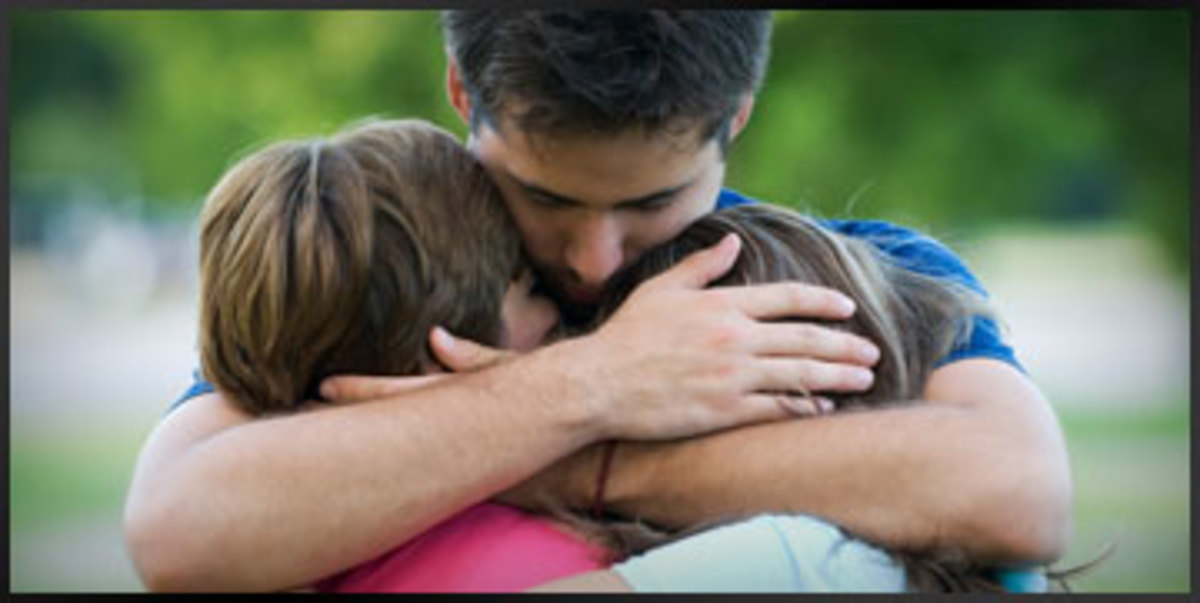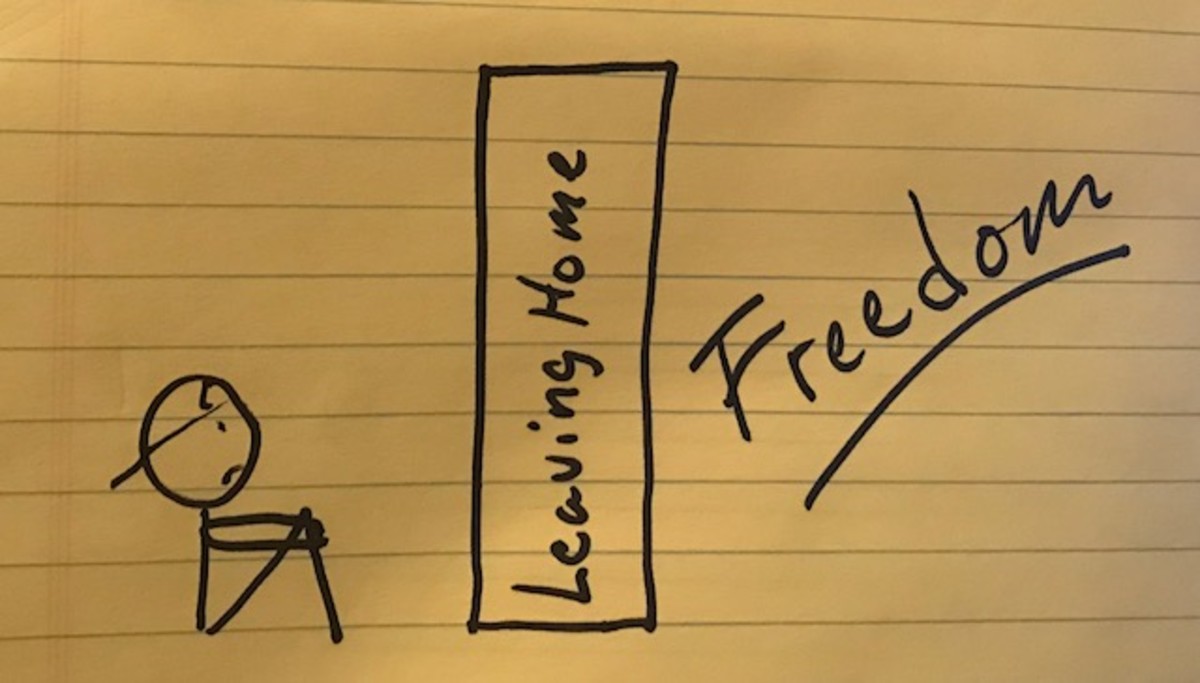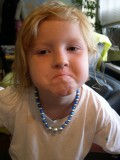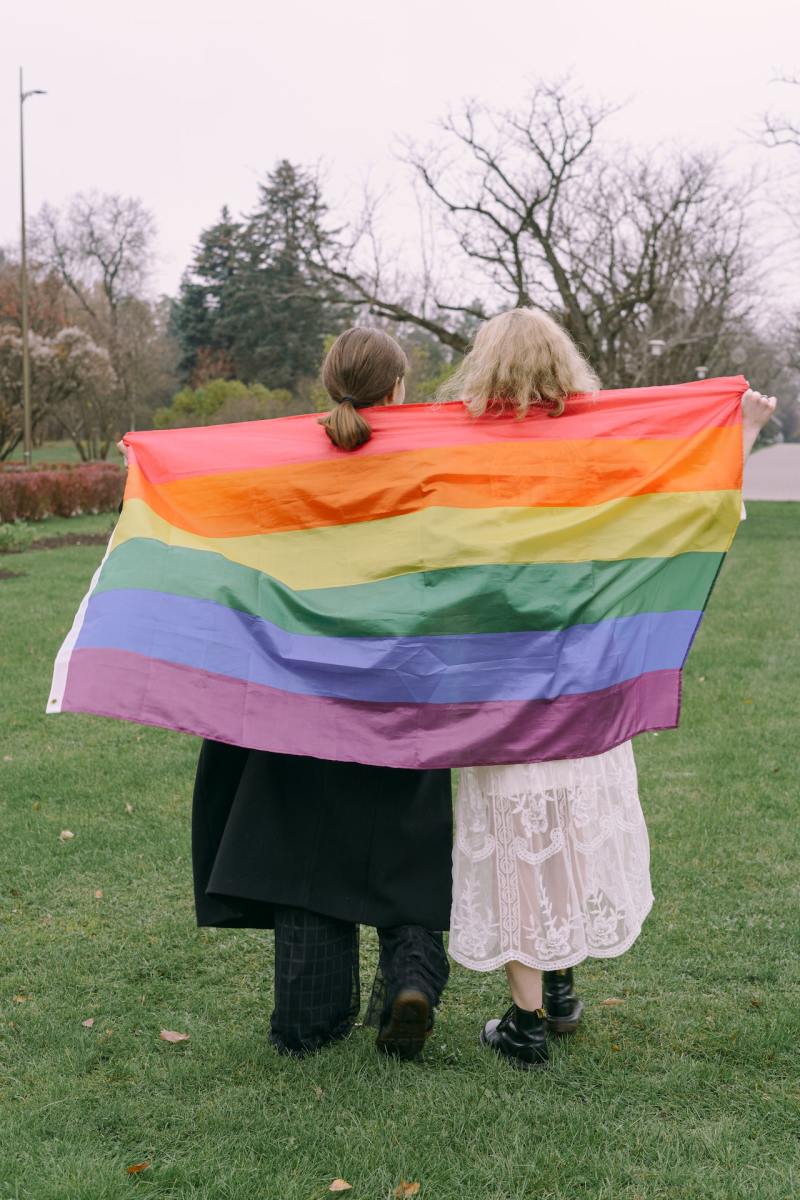Dealing With A Child's Fear Of The Future
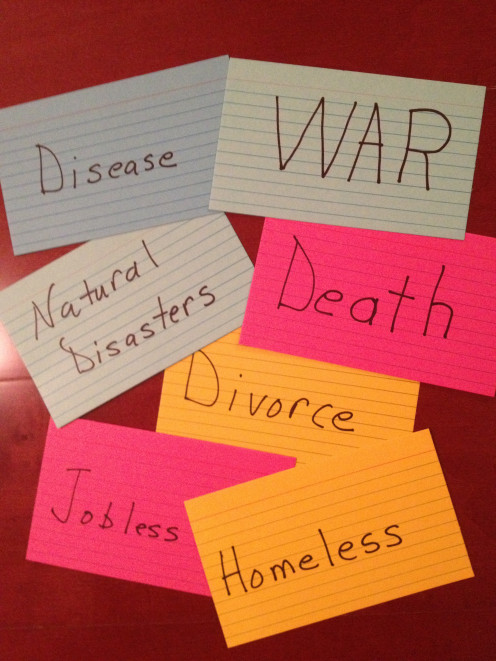
Life In The 50's: Reasons Fear Was Minimal
In general the population experienced family stability, optimism and economic security. Opportunity for employment and career paths was high and gender roles were clearly defined. Life allowed for relaxation and contentment.
Additional Facts:
- Bread was 14¢
- Average Salary was $2,992.00
- Unemployment was 3,288,000
- The government issued a pamphlet on bomb shelter buildings: You Can Survive
- Explorer orbited the earth in 1958
- In 1955, the Salk Polio vaccine was invented, and Rosa Parks made a statement for civil rights.
- Presidents: 1950 - 52: Harry Truman; 1953 - 1961: Dwight D. Eisenhower
Source: US Census Bureau
Ten years old is quite young to be thinking about death, yet this is exactly what crossed my mind as I looked out the window of my bedroom viewing the blue sky above. Was there anything beyond this world? Suddenly, I had a great fear of dying. I harboured this thought for a few weeks to myself; contemplating the act of dying. Was it painful? I feared the darkness and the shadow of thought that whispered from beyond the veil of uncertainty. What if I died today without ever getting a chance to go to college, to marry, or to have children of my own? It was the 1950's; what was there to fear compared to today's world?
Psychologists state the future is not a major concern for adolescent children ages 9 - 13. As a child ages a few years (15), the future still centers on the "now" and vision is focused on what is relative. Once a child reaches adulthood (18 and beyond), the future seems to take hold and begins to cause some anxiety as one realizes the future path is set by their decisions and outlook. So from a logical view, my thoughts were rare for a child of ten.
In the past few years, I have heard children express fear of the future at an earlier age and it seems to be a common thread as they discuss social issues in the classroom. A young child of ten recently asked me, "Do you think the world will end in nuclear war and will anyone survive?" He shared his fear of losing his family and being all alone in a desolate world.
Fear is an emotional awareness that alerts us to events of significance in our life, even of perceived danger. The normal response it to minimize the fear and to proceed with caution. Courage is the antidote of fear. However, before a child can take courage to move forward, it sometimes helps to gauge the reality of fear. In our present world, there are many reasons for our children to have concerns, but a parent can help a child by guiding them with loving support.
Common Childhood Fears
Age
| Fear
|
|---|---|
0-6 months
| Loud noise, sudden movement, loss of support
|
7 - 12 months
| Strangers, heights, falling, sudden and unexpected looming objects
|
1 year
| Separation from parent, injury, toilet
|
2 years
| Loud noises, animals, doctors (pain and intrusiveness), separation from parent
|
3 - 4 years
| Imaginary dangers (monsters, bad dreams), dark, masks, separation from parent
|
5 - 6 years
| Imaginary dangers
|
7 - 8 years
| Supernatural beings ( aliens, spooky things), bodily injury, staying alone, natural disasters, media reports of violence, war, death, dark
|
9 - 12 years
| Tests in school, school performance, bodily injury, physical appearance, thunder and lightning, death, dark
|
Teens
| Fear of failure, social fears, sexuality, death, dark
|
Source: ehealthguild.com/childhood fears
|
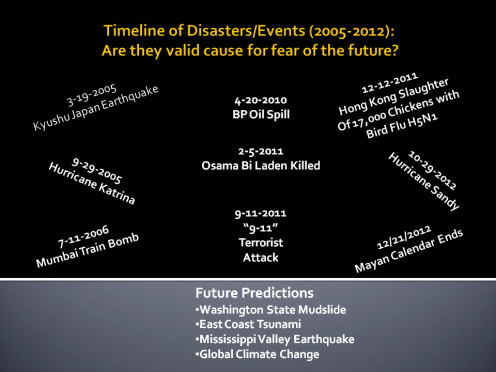
Signs Of Fear In Children
- Sleep patterns may be erratic. Often children who are fearful will wake up after an hour of sleep. They may have problems getting to sleep or staying asleep.
- Nausea and headaches may occur more frequently
- Stomachaches may also become a common ailment
- Nervousness, twitching, and sweaty palms
- Clingy and impulsive actions
- Heart rate and breathing are accelerated
- Low energy
- Appetite change
- Regressive behavior such as thumb-sucking, aggression, school avoidance
- Sensitivity to sound, movement and alcohol
Resource On Overcoming Fears
How To Help Your Child Cope
- A parent can help their child best by role modeling coping behavior. Discussing the fear and the associated concern will allow a child to know you care how they feel. Talk about the concern calmly, your child will be watching you for clues on how to react.
- During the discussion, hug your child and show signs of affection such as rubbing their back.
- Reassure your child that together you are safe.
- Discuss your child's fears and feelings about the disaster. Share your thoughts and fears also. Talk in terms your child can understand.
- Discuss what happened or might happen.
- Spend extra time with your child at bedtime.
- Allow your child to grieve about a loss of friends, family, possessions and other important items that may have triggered the fear.
- Discuss what your child should do if another disaster strikes. Let him or her help in preparing and planning for future disasters.
- Spend extra time together in family activities to begin replacing fears with pleasant memories.
- Older children can get involved in community work. Helping others may take their mind off the pain, and the effort and love given to others through service will help them to heal.
- If your child is in sports or a club, encourage them to slowly participate again.
- Temporarily reduce expectations of school work.
- Encourage discussion, but do not force, at family settings such as meal times and devotionals.
- Pray with them. Quote scriptures that promote healing and strength.
source: fema.gov/pte/children
Words of Comfort
God is a safe place to hide, ready to help when we need him. —Psalms 46:1
Even when the way goes through Death Valley, I'm not afraid when you walk at my side. —Psalm 23:4
God, my strength, my stronghold, my safe retreat when trouble descends. —Jeremiah 16:19
Peace cannot be achieved through violence, it can only be attained through understanding. —Ralph Waldo Emerson
Dear God, please send to me the spirit of Your peace. Then send, dear Lord, the spirit of your peace from me to all the world. Amen. —Marianne Williamson
Peace begins with a smile. —Mother Teresa
Share Your Thoughts
What is your greatest concern about the future?
When To Get Professional Help
After a disaster or crisis a child will show concerns and fears over the event happening again. They are afraid of being injured or killed, or that they will be left all alone. Let your child talk openly about the disaster. He most likely will have many questions. If it helps, ask him to write his concerns down and to draw pictures about what happened (or what he fears will happen).
Listen to your child's fears. Even though a child's fears may be imaginary, a parent should take them seriously. A child looks to an adult for comfort and your firm reassurance coupled with love and kindness helps her to realize that life does eventually return to normal after a crisis.
If your child shows signs of fear beyond this, you may have to seek professional counseling. Ask your child's school guidance counselor for advice, they are trained to comfort children in this area. Also, your primary care physician should be consulted and he or she will know if a referral to a psychologist is recommended.
Contact your pastor or clergy for prayer and consultation. Spiritual guidance and support will not only help your child, but the family as well.
Community health organizations may have services helpful in guiding your child. Many organizations promote peer-to-peer group settings. These settings allow your child to discuss openly with children of like-minded concerns and it also helps them to understand they are not alone in their fears.


